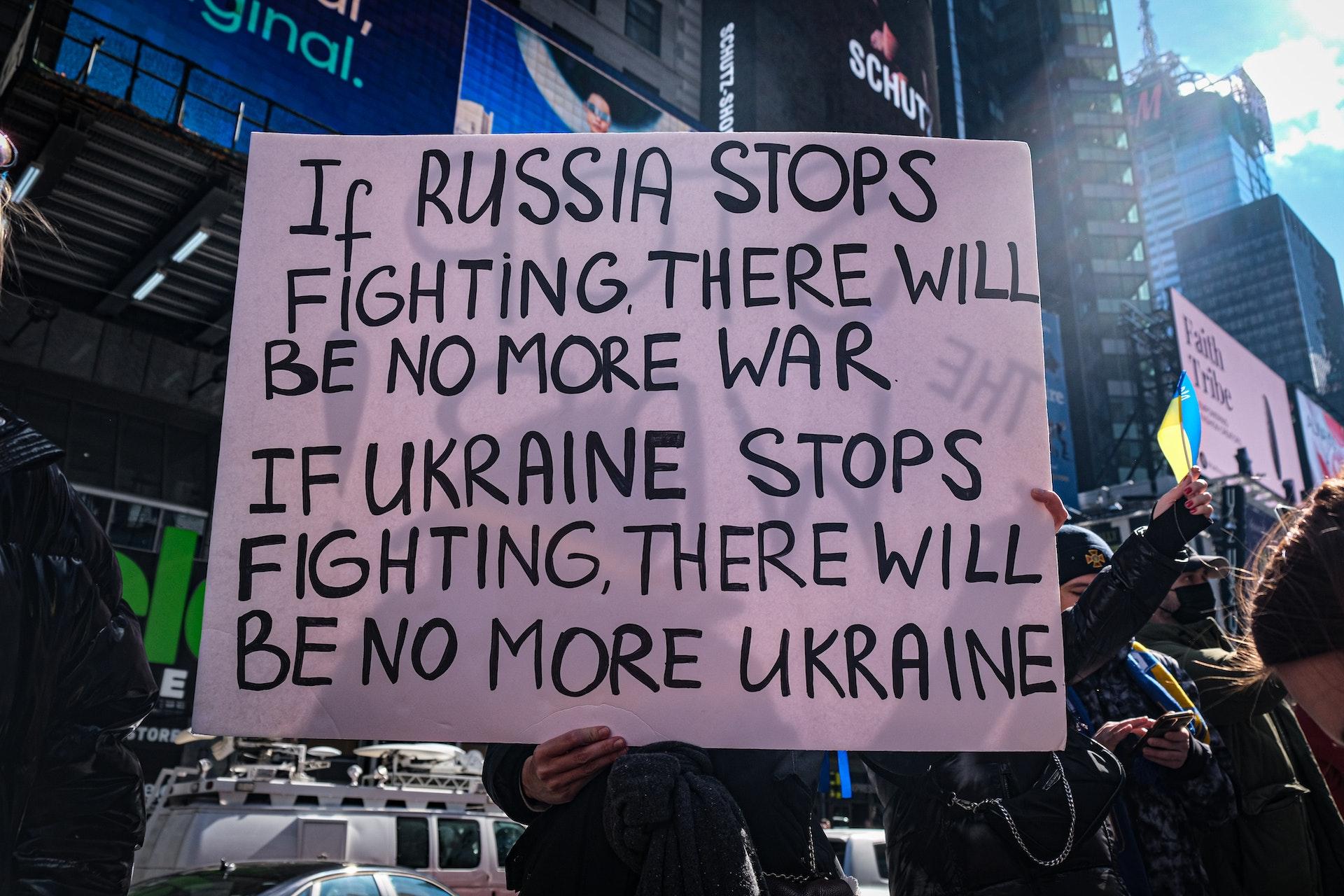
3 lessons from Ukraine: Europe has some homework to do
Since the theft of Crimea, the war has so far taught Europe countless lessons. Among them some stand out – perhaps due to their acute nature that stubbornly keep raising in the ranks of headaches. We might have heard some to our boredom, like in airplanes where “in case of an emergency, air masks would drop the ceiling” that ought to be put on before helping others.
But what do we do in a situation where masks don’t come out of the ceiling, or even worse, there are only 10 masks on the whole plane? How much have we paid
attention to any of the safety information that the flight attendant Mrs. Ukraine has
passed on to the passengers for the last 8 years?
After decades of peace in Europe some have forgotten that sharing a border with
Russia (as its various predecessors) has always meant that there is neither any room
for hesitation nor time to be deeply concerned when crisis erupt. These days military
response to any invading men in green with or without distinguishing markings
requires robust intervention already at the state border.
Today, there is no argument to justify a reduction in defense spending in Europe or,
worse still, to maintain it at current levels that are appropriate for peacetime. Even
before the outbreak of war, many countries had inadequate military defense even
though the economic capacity existed to provide them. It was simply a question of
choices and priorities.
Si vis pacem, para bellum
There is a need to significantly increase defense spending as prevention is always
cheaper than dealing with the consequences – it is a basic tenet of crisis and pre-
crisis management. Simply put – how well you do before the crisis, determines
largely the outcome of the situation.
This helps to avoid potentially embarrassing situations where, at a critical moment,
the headquarters might have to choose between sending one or both tanks to help
their neighbors. This, for example, characterizes the state of heavy equipment in the
Baltic States before the Second World War.
But there is more than defense spending. Nowadays, it is increasingly important that
a democratic state can continue to function on a day-to-day basis as much as
possible, even when at war. Modern state as an ultimate governing institution simply cannot shut its doors to its citizens. There would be consequences, at some point such that would paralyze national defense, and nobody wants that.
When that moment comes, it should be postponed by a functioning state apparatus
that instils confidence and tries to re-organize the society in new reality. The state
has obligations towards its citizens, just like men are being mobilized to defend the
core values at the heart of which is the state itself. It could be described as a
partnership based on faith that no one will be left behind, at least in free societies.
Through the payment of pensions, provision of trustworthy information and
instructions, social or public services to the citizens the way they are possible, these
underestimated bureaucratic actions have significant impact in mobilizing the society in defense of the state which becomes a common good that needs to be preserved.
However, this does not replace the need for mobilization and compulsory purchase
procedures. Rather, they complement each other, bringing the people behind their
army, which is vital for victory.
Brave new Europe
Yet, the second invasion has highlighted another dimension in national defense.
Spread of misinformation, incitement of certain minor groupings within populations
against the state and its foreign policy and encouragement of hostilities between
member states, especially allies – there should be zero tolerance on these issues.
A sober assessment should be made of whether the pseudo-dialogue on whether
permanently shutting down information sources carrying the messages of an aggressor state violates some European laws, rights and values, in a situation where hostile forces are tirelessly exploiting them to their own advantage.
Afterall, it’s reasonable, as the familiar voice advising you to whenever the seat belt
sign is on, to stay seated and buckled up as turbulence may occur at any time –
during war time it is no different.
Equally important is to acknowledge the Russian hostile use of social media on
global and systematic scale without mercy aiming to sow fear, cause destruction and
confusion, and in general fog of war. Social media has become an integral part of
modern warfare, where an innocent civilian may be targeted for bombing or
becoming the enemy’s forward observer.
Therefore, a systematic approach is needed to mitigate such threats and awareness
must be raised. At the same time social media cannot not be banned, as it is also a
priceless defense resource and crisis communication tool.
It is crucial that the West reacts and learns as many lessons from Ukraine as
possible. In the 21st century, the ability to adapt, will to large extent determine, how
strong the resistance of citizens (and hence of the state) to the aggressor and their
support for a defensive war, which may not have a definite deadline, can be.
Europe has homework
At the European Union level, clear guidelines and legislation is needed to oblige all
member states to pay special attention to conventional and hybrid threats and to
systematically mitigate it, irrespective of the current relationship between the
government of one country or another and a state that supports terrorism, such as
the Russian Federation.
Europe is to blame for some of its headaches, but it is all the more reason why it is
time to learn from these lessons and stop repeating them. Obviously, none of us are
interested in experiencing the sequel to Russki mir, which continues to be an
existential threat to all East European countries and cultures.
Photo: Ukrainian demonstration (Katie Godoski/Pexels, 2022)
Jaga postitust:
